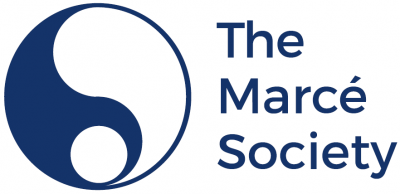Screening and intervention for postnatal depression
NSW HEALTH POLICY INITIATIVES: A PUBLIC HEALTH FRAMEWORK FOR REDUCING POSTNATAL DEPRESSION
Nick Kowalenko, V Macarty, NSW Health Dept, NSW
Background: This presentation will outline the important progress made in the clinical use of screening instruments for the detection of postnatal depression. The potential for screening provides the opportunity for a major public health initiative in the 1990s. Empirical evidence suggests that recognising and intervening in PND contribute to better outcomes for mothers and infants. While the promise of such an outcome is tantalising, the limitations of screening also need to be considered. This paper will describe the EPDS and the measures required to implement effective screening, including (i) clarifying case definition, (ii) agreeing on effective treatment approaches, (iii) ensuring an adequate skill base is available and (iv) adequate resources being provided to comprehensively manage those identified.
Outcomes: The NSW Health Department undertook the Postnatal Depression Services Review (1994) to consider these issues amongst others. This paper will explore relevant developments in each of these areas and describe a comprehensive framework in which consistent detection and management of postnatal depression can be realistically considered.
Conclusions: Relevant health service planning, community involvement, policy, training, research and evaluation are described. This paper will emphasise primary health care detection, the role of health services particularly mental health services, and discuss the implications for the development of collaborative partnerships to reduce the impact of postnatal depression in the community.
PROMOTING POSITIVE OUTCOMES FOR PARENTS WITH SERIOUS MENTAL ILLNESS
Jenny Hearle, J McGrath, K Plant, J Barkla
Queensland Centre for Schizophrenia Research, Wolston Park Hospital, QLD
The Report of the National Inquiry into the Human Rights of People with Mental illness (Human Rights and Equal Opportunity Commission, 1993) includes moving testaments from people with mental illness about the interactions between parenthood and "patienthood". One consumer commented "losing my son made me feel very small, useless and of no value to society and myself" (p496). The report recommends that relevant government departments should co-operatively develop, fund and implement services for mentally ill parents and their children.
Deinstitutionalisation, institutional reform, wider opportunities for community participation and independent living may contribute to more people with serious mental illness becoming parents. Many community agencies are reporting a rising number of mentally ill parents accessing their services and are experiencing some difficulty in adequately meeting their needs.
The literature about mental illness and the family has tended top focus on the negative impact of parental mental illness on the children. Less research has examined the issues from the parent's perspective and this research project aims to redress this. This study has two main aims:
- To survey the prevalence of parents with a serious mental illness in two integrated mental health services
- To assess the met and unmet needs of parents with serious mental illness.
Preliminary data from interviewer administered, semi-structured questionnaires will be presented, including sociodemographic illness related, "parent" related and service utilisation data.
Acknowledgments: West Moreton Integrated Mental health Service; West End Mental Health Service; Qld Health Promotion Council; RADGAC.
POSTNATAL ISSUES GROUPS
Mary Morgan, S Matthey
Jade House, South Western Sydney Area Health Service, NSW
Over the past two and half year at Karitane, a family care facility, a group intervention has been offered to women with a postnatal mood disorder. For one of the ten sessions, partners are included. An overview of the groups, along with outcome data, will be presented.
DEPRESSION AFTER BIRTH AND METHODS FOR TRANSCULTURAL ASSESSMENT: THE MOTHERS IN A NEW COUNTRY (MINC) PROJECT
Rhonda Small, Centre for the Study of Mothers' and Children's Health, La Trobe University, Melbourne, VIC
Assessment of mental health issues in transcultural contexts is not well developed methodologically, with increasing agreement that "gold standards" are elusive. Research which evaluates different approaches to the transcultural assessment of particular mental health problems is overdue, particularly in multicultural communities such as we have in Australia. The paper will describe the Mothers in a New Country (MINC) Project which has assessed the mental health of 318 Vietnamese, Turkish and Filipino women in the second half of the first postnatal year. Three trained bicultural interviewers recruited women to the study on the postnatal wards of Melbourne's three maternity teaching hospitals and then interviewed women at home on average 6-7 months after the birth. Three different approaches to assessing women's mental and physical health status were utilised in the study:
- women's' responses to interview questions about depression and physical health problems after birth
- women's scores on the Edinburgh Postnatal Depression Scale (EPDS)
- women's scores on the SF-36 general health scale.
The paper will outline the findings of these different methods of assessment and discuss the usefulness of such an approach in coming to an understanding of women's well-being after childbirth in the context of these three immigrant communities. Some of the methodological and practical problems in transcultural research of this kind will also be discussed in arriving at the most appropriate translations of standard instruments, even when careful processes of translation, back translation, focus group discussion and piloting are employed.
VALIDATION OF THE EDINBURGH POSTNATAL DEPRESSION SCALE INTO CHINESE
Fonnie Chan, P Panasetis, B Barnett, S Matthey
Paediatric Mental Health Service, South Western Sydney Area Health Service, NSW
Several rating scales have been used by clinicians and researchers to aid in the recognition of postnatal depression. The Edinburgh Postnatal Depression Scale (EPDS; Cox, 1987; Murray & Carothers, 1990) is one of the most widely used screening tools. Various researchers have reported good psychometric properties for the English version of the EPDS (Boyce et al, 1993; Murray & Carothers, 1990). Although the scale has been translated into many languages, few validation studies have been reported in the literature. Recent work by Matthey and Barnett (1996) with Vietnamese and Arabic speaking women has supported the applicability and usefulness of the EPDS with these non-English speaking groups. Data from the 1991 census show that the Chinese-speaking community is the largest NES group in NSW (119,000 combining Cantonese and Mandarin). It was also the fastest growing language between 1986 and 1991. The need for a valid screening tool for postnatal depression for this non-English speaking group is evident.
Method: A sample of 125 Chinese speaking women is being recruited from the antenatal clinics of three local hospitals. Demographic and pregnancy data will be collected on all subjects. Subjects will then be interviewed at six weeks postpartum at which time they will be asked to complete Chinese versions of the EPDS, GHQ and the Faces Sheet (COOP Project, 1989), and will also be given the Chinese CIDI (Composite International Diagnostic Interview). Social support data will also be collected. Preliminary findings will be available by June 1997 and will be reported at the conference.





